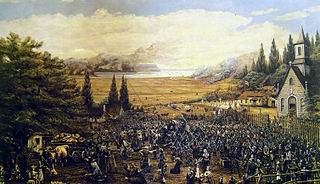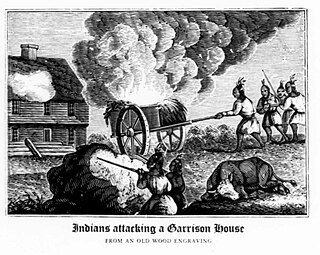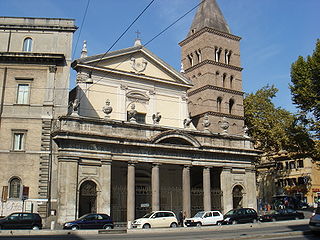Related Research Articles

1755 (MDCCLV) was a common year starting on Wednesday of the Gregorian calendar and a common year starting on Sunday of the Julian calendar, the 1755th year of the Common Era (CE) and Anno Domini (AD) designations, the 755th year of the 2nd millennium, the 55th year of the 18th century, and the 6th year of the 1750s decade. As of the start of 1755, the Gregorian calendar was 11 days ahead of the Julian calendar, which remained in localized use until 1923.

1675 (MDCLXXV) was a common year starting on Tuesday of the Gregorian calendar and a common year starting on Friday of the Julian calendar, the 1675th year of the Common Era (CE) and Anno Domini (AD) designations, the 675th year of the 2nd millennium, the 75th year of the 17th century, and the 6th year of the 1670s decade. As of the start of 1675, the Gregorian calendar was 10 days ahead of the Julian calendar, which remained in localized use until 1923.

Francesco Scipione Maffei was an Italian writer and art critic, author of many articles and plays. An antiquarian with a humanist education whose publications on Etruscan antiquities stand as incunables of Etruscology, he engaged in running skirmishes in print with his rival in the field of antiquities, Antonio Francesco Gori.

Sir William Dugdale was an English antiquary and herald. As a scholar he was influential in the development of medieval history as an academic subject.
Scipio may refer to:

I masnadieri is an opera in four acts by Giuseppe Verdi to an Italian libretto by Andrea Maffei, based on the play Die Räuber by Friedrich von Schiller. As Verdi became more successful in Italy, he began to receive offers from other opera houses outside the country. The London impresario Benjamin Lumley had presented Ernani in 1845 and, as a result of its success, commissioned an opera from the composer which became I masnadieri. It was given its first performance at Her Majesty's Theatre on 22 July 1847 with Verdi conducting the first two performances.
Below are notable events in archaeology that occurred in 1896.
Below are notable events in archaeology that occurred in 1921.
Sir David Mackenzie Wilson, FBA is a British archaeologist, art historian, and museum curator, specialising in Anglo-Saxon art and the Viking Age. From 1977 until 1992 he served as the Director of the British Museum, where he had previously worked, from 1955 to 1964, as an assistant keeper. In his role as director of the museum, he became embroiled in the controversy over the ownership of the Elgin Marbles with the Greek government, engaging with a "disastrous" televised debate with Greek Minister of Culture Melina Mercouri.

San Crisogono is a church in Rome dedicated to the martyr Saint Chrysogonus. It was one of the tituli, the first parish churches of Rome, and was probably built in the 4th century under Pope Sylvester I (314–335).
The decade of the 1740s in archaeology involved some significant events.
The decade of the 1750s in archaeology involved some significant events.
The decade of the 1780s in archaeology involved some significant events.

Francesco, the Italian version of the personal name "Francis", is the most common given name among males in Italy. Notable persons with that name include:
Maffei is a surname of Italian origin.
Alexander Gordon was a Scottish antiquary and singer. His survey of Roman sites, the Itinerarium Septentrionale, was considered an essential reference by all Roman antiquaries of his time.

Dame Rosemary Jean Cramp, was a British archaeologist and academic specialising in the Anglo-Saxons. She was the first female professor appointed at Durham University and was Professor of Archaeology from 1971 to 1990. She served as president of the Society of Antiquaries of London from 2001 to 2004.
Marchese Maffei may refer to:

Scipione Agnelli was an Italian Catholic bishop, scholar and jurist.
Elena Balletti, Elena Riccoboni or Flaminia was an Italian actress, poet, woman of letters, playwright and writer.
References
- ↑ ">History of the Monarchy > The Yorkists > Edward V". Archived from the original on 18 October 2007. Retrieved 2007-10-28.
- ↑ Sarjeant, William A.S. (1997). "The earliest discoveries". In Farlow, James O.; Brett-Surman, Michael K. (eds.). The Complete Dinosaur . Bloomington: Indiana University Press. pp. 3–11. ISBN 0-253-33349-0.
- ↑ In the collection at Burton Constable Hall. Presenter: Richard Miles (2013-04-30). "In the Beginning". Archaeology: A Secret History. Episode 1. 38 minutes in. BBC.
- ↑ "Francesco Scipione, marchese di Maffei - Italian dramatist". Encyclopedia Britannica. Retrieved 10 June 2017.